Are you looking to draft a custom research authorization letter but not sure where to start? Writing a clear and concise letter can make a significant difference in the approval process, ensuring all your research intentions are communicated effectively. This guide will walk you through a simple template that covers all the necessary elements while maintaining a professional tone. So, if you're ready to get your research underway, let's dive in and explore how to craft the perfect letter!
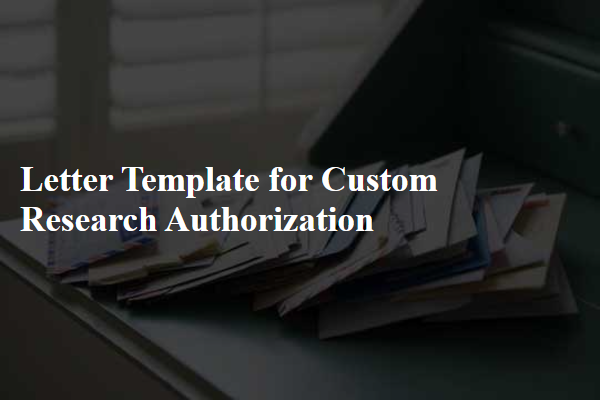
Contact Information of Requester
Custom research authorization is essential for accessing sensitive data in academia and industry. Requesters must provide comprehensive contact information, including full name, institutional affiliation, email address, and phone number. This information ensures proper communication between researchers and the entities managing the data. Additionally, details such as the date of request and specific research objectives help establish a clear context and purpose for the data access. Transparency in contact information fosters trust and enhances the likelihood of receiving timely research approvals.
Research Scope and Objectives
Custom research authorization involves a defined research scope and specific objectives aimed at gathering pertinent data. The research scope outlines the boundaries and limitations of the study, such as geographic location (e.g., New York City), target demographic (e.g., adults aged 18-65), and the industry focus (e.g., renewable energy sector). Objectives include measurable goals, such as evaluating consumer awareness of solar panel benefits, assessing adoption rates, or understanding the impact of local government incentives. A well-defined scope and objectives enhance clarity, ensuring the research aligns with stakeholders' expectations while fulfilling academic or business purposes. Explicit details on methods (e.g., surveys or interviews) and data analysis techniques (e.g., statistical software) also contribute to the study's robustness.
Data Protection and Privacy Compliance
Research authorization requests necessitate a structured approach to ensure compliance with data protection and privacy regulations, such as the General Data Protection Regulation (GDPR) enacted in May 2018. This compliance includes clear articulation of the research objectives, detailed descriptions of the data types collected (such as personal identifiable information, health-related data, or financial records), data processing activities, and the specific measures taken to protect that data. Institutions or entities conducting research, like universities or healthcare organizations, are required to obtain explicit consent from participants, ensuring transparency concerning their rights under Article 7 of the GDPR. Additionally, the research proposal should outline the storage duration of data, anonymization procedures, and potential sharing with third parties, ensuring confidentiality and security. Ethical considerations, along with adherence to local regulations, play a crucial role in protecting the rights of subjects involved in research studies.
Authorization and Consent Clauses
Custom research authorization requires detailed consent sections to ensure ethical standards. Participants must understand that their personal data, such as demographic information, medical history, and responses to surveys, will be collected for research purposes. The authorization should specify the use of data in studies, including how long it will be stored (often up to five years post-study) and who will have access (research team members and authorized personnel only). An explanation of potential risks, such as confidentiality breaches, must be included, alongside assurances of data protection measures (like encryption and secure storage). Additionally, participants should have the right to withdraw consent at any time without affecting their relationship with the research institution or receiving any penalties. Clear instructions on how to withdraw consent should also be provided to ensure participant autonomy.
Signature and Date Fields
Custom research authorization requires clear documentation, often found in legal agreements or forms. Buyers and sellers must ensure that both parties' rights are protected through signature fields for both the researcher and the subject, often located at the bottom of the document. Dates on these forms typically correspond to when the consent was obtained, providing a reference point for compliance. Details such as institutional affiliations, project titles, and specific research parameters should be outlined to establish context. Properly signed and dated forms are essential for transparency and accountability in research practices.

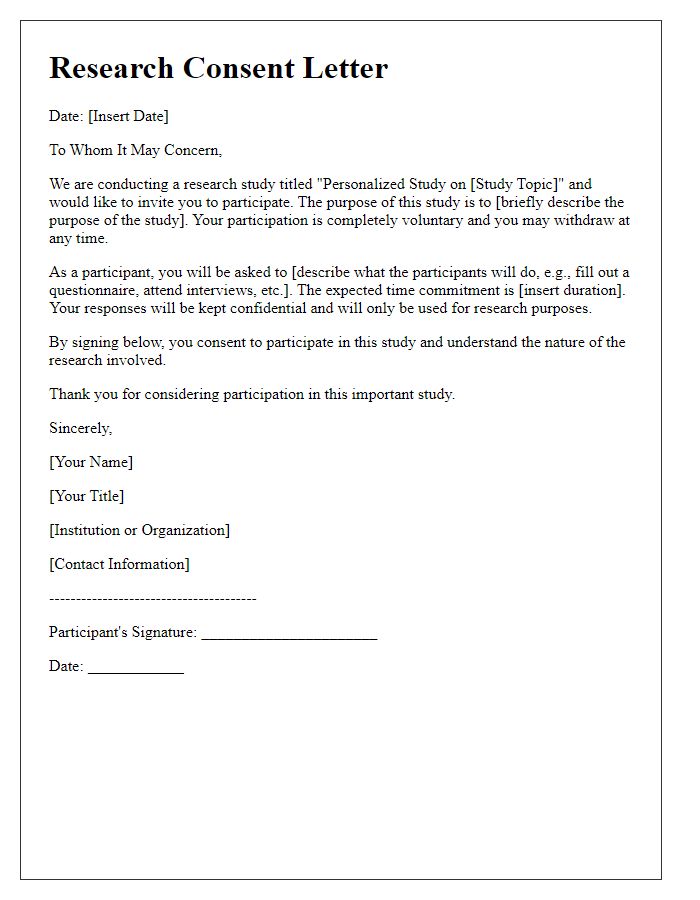
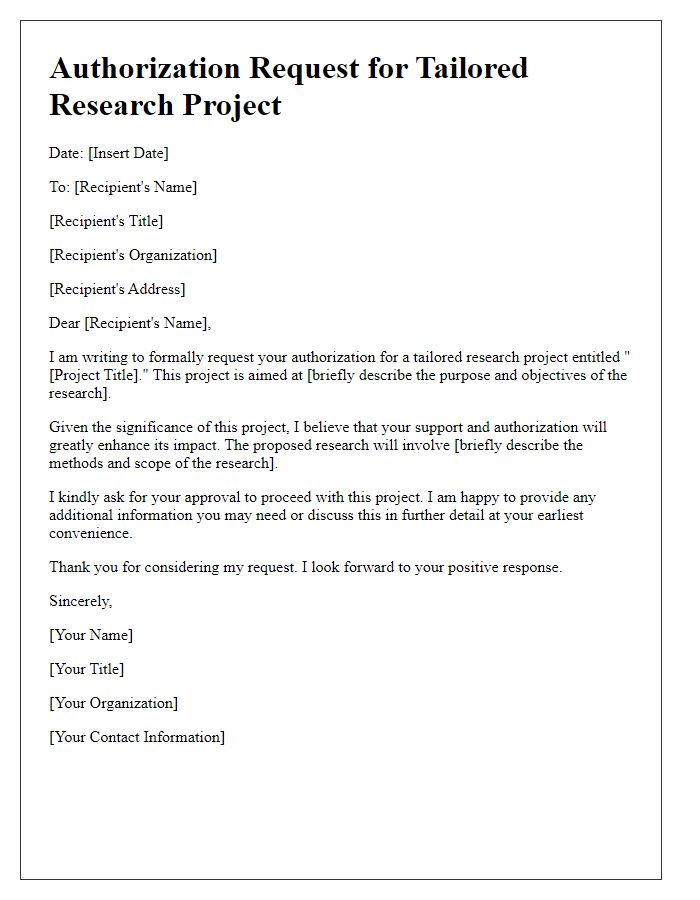
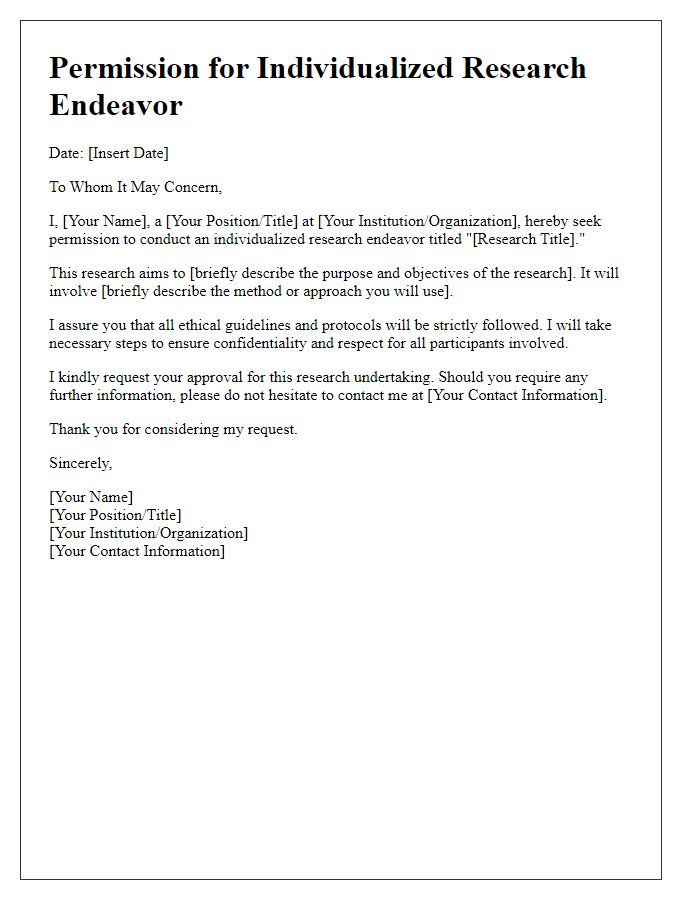
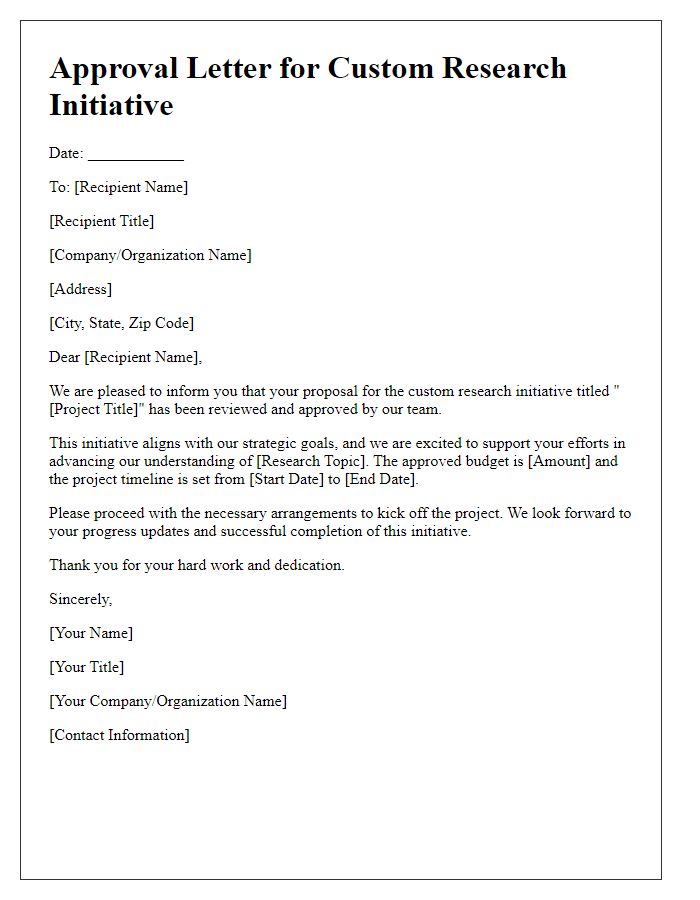
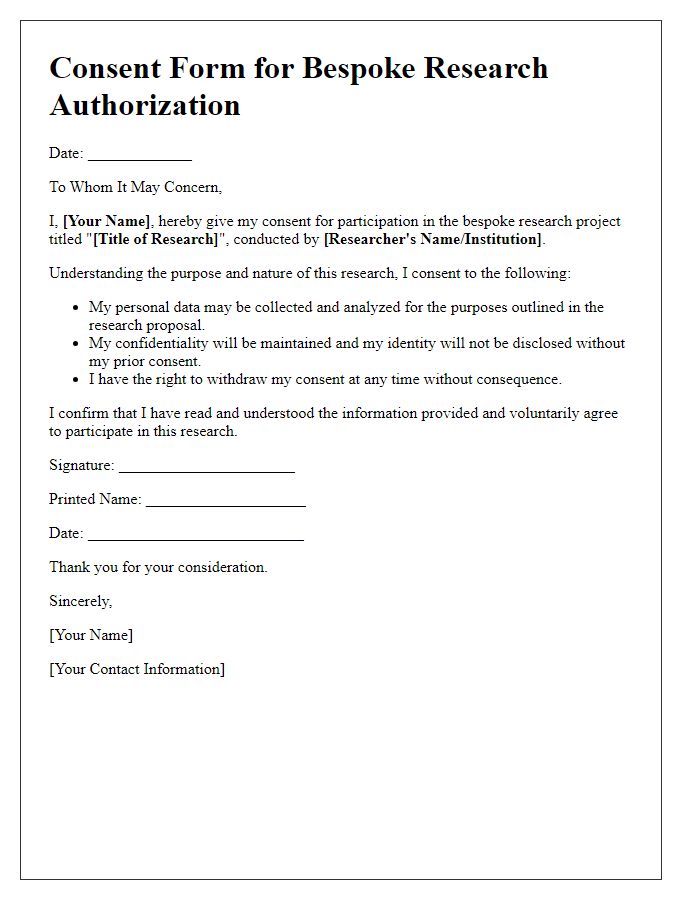
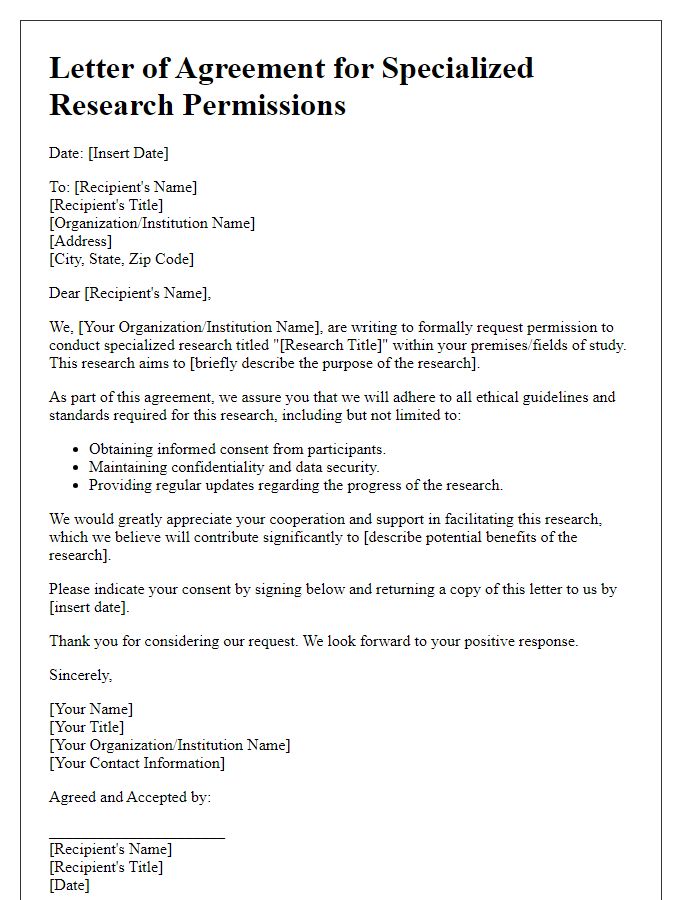
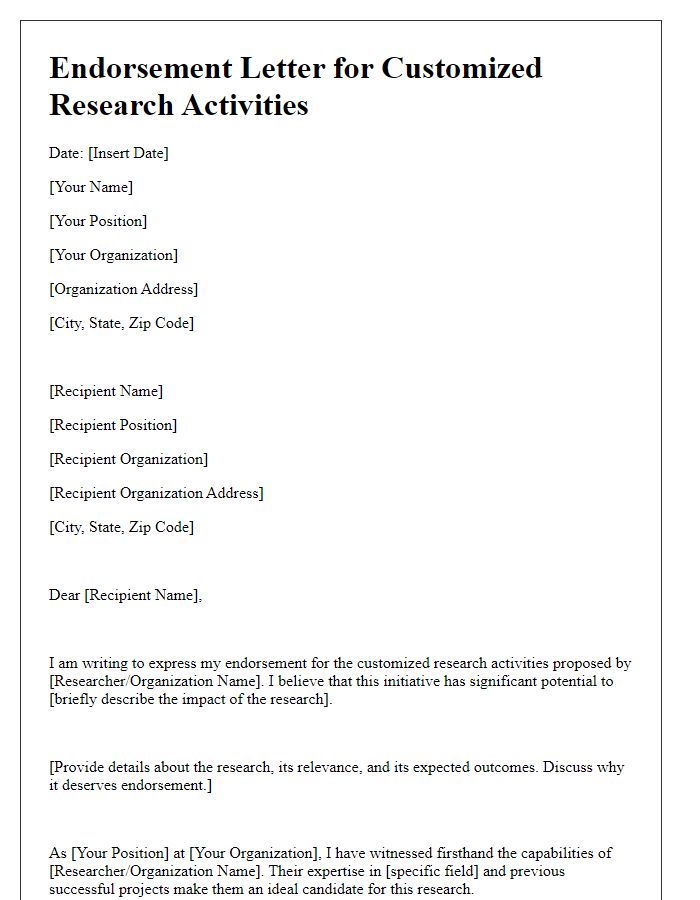
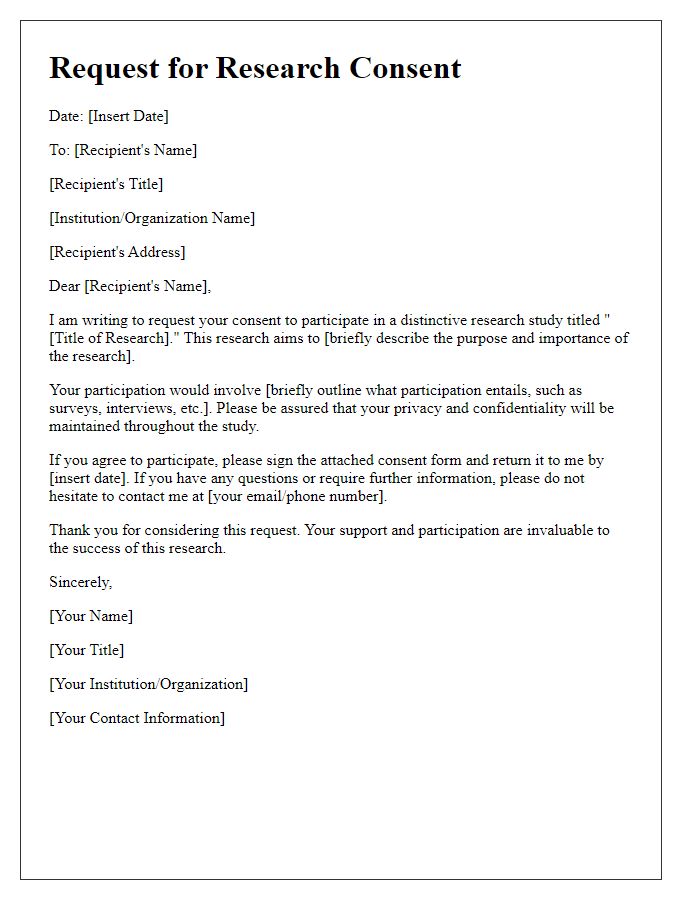
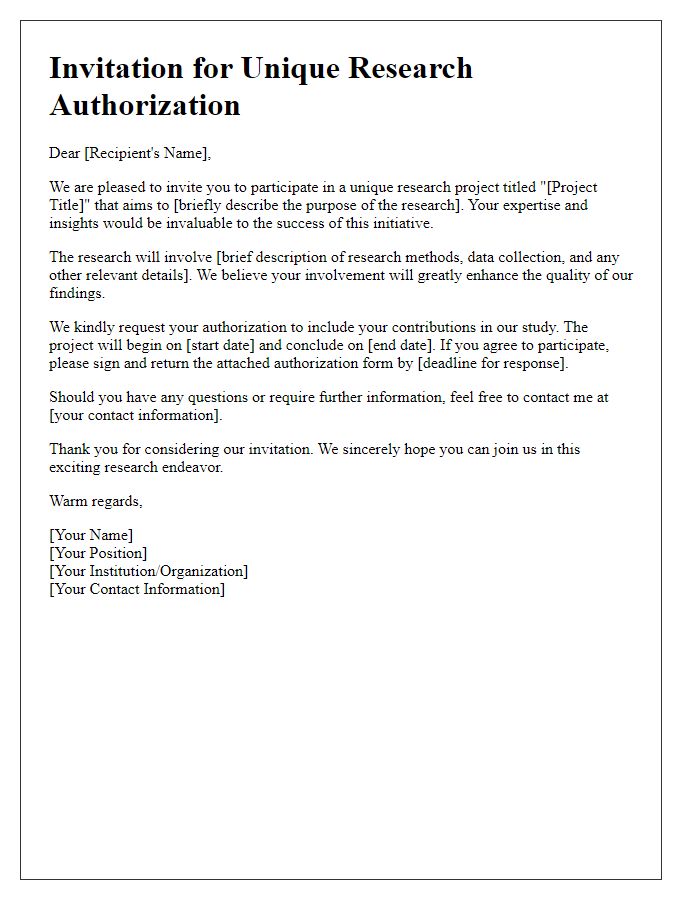
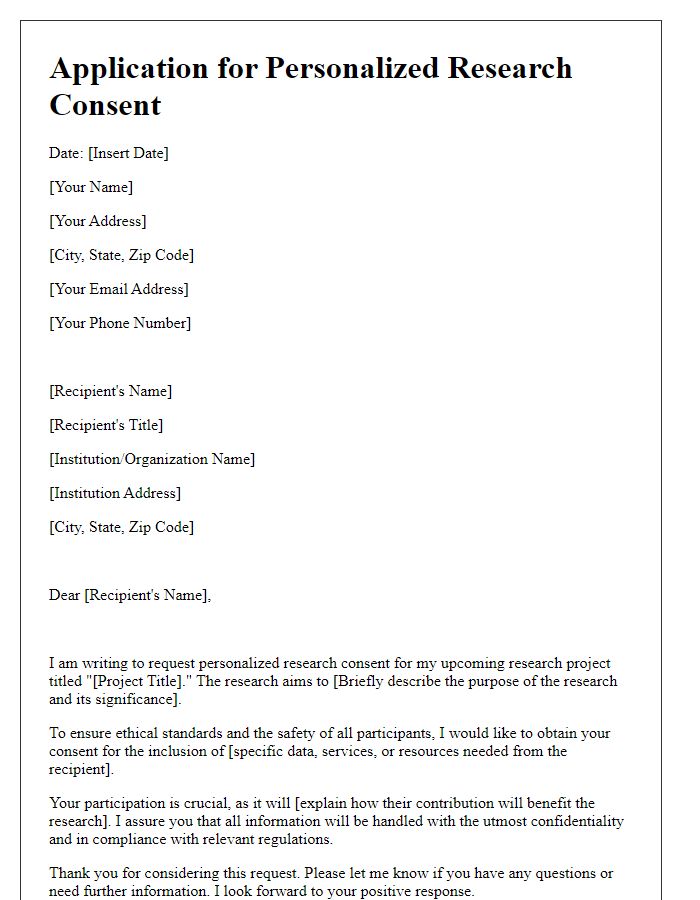


Comments